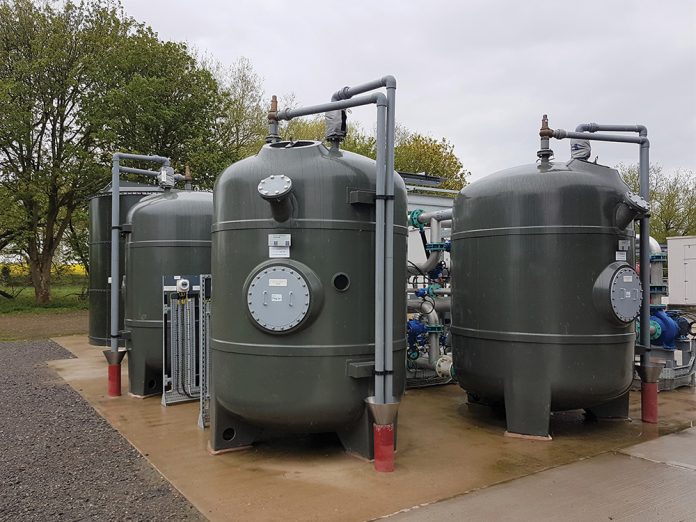In this issue of the Water Industry Journal, we speak to Andrew Bibby about the challenge posed by phosphorus as we move into a new Asset Management Plan (AMP) period.
“As an industry, as the analysis of water has improved and our understanding of the impact phosphorus has on the environment has grown, controls on phosphorus levels have consequently become more stringent. Water companies now have a duty to protect and enhance the natural water environment.
“so finding effective treatments for removing phosphorus from wastewater and limiting the amount that makes its way back into our watercourses is imperative.”
“As we move from one AMP to another, environmental obligations are becoming tighter still and that’s why it’s important we build on the advances made in recent years so we successfully meet the new consent levels and protect aquatic ecosystems for generations to come.
“Technology has moved on in recent years,” explains Andrew, “once where popular filtration systems were akin to a two dimensional mesh, although they satisfied the consents at that time, their filtration performance fails to capture a lot of the pollutants demanded by todays and future discharge consents.
Today’s systems are now more akin to a sponge, having the ability to capture and retain far more pollutants far more efficiently than was once the case.
“FilterClear, is one such system, a high rate multi-media filter, it incorporates media in a variety of sizes and densities, from coarse to fine, light to heavy, including anthracite, silica, alumina and magnetite. With a bed-depth of 900 millimetres, along with the graded media, makes it extremely effective at capturing particulate solids that other technologies fail to do so.”
“In our work providing treatment solutions to the water industry, we’ve found it is the bed-depth and the ability to utilise the entire depth effectively, that is crucial to successfully remove phosphorus from wastewater. Equally important is the ability to remove those captured pollutants from the media when required and continue to do so over time without loss in filtration performance.”
This patented technology has a number of advantages, including better effluent quality, higher filtration rates r means a smaller footprint than many solutions, high solids holding capacity means the filters are tolerant to higher solids loadings and fluctuations, especially important where chemical dosing adds additional solids load to the filter.
FilterClear is not new technology, there are numerous municipal and industrial applications where our clients have witnessed years of low cost trouble free operation. Building on lessons learnt from these references and putting them into practice, our system at Severn Trent Codsall has operated consistently and issue free since February 2018
In just over a year since it was installed the results have been outstanding. Capable of treating up to 100 L/s of flow, the FilterClear system has comfortably met the tighter consent of 0.5 mg/l for phosphorus. In the words of one of the Severn Trent operations team, ‘reassuringly boring technology’.
These results mirror those of the Chemical Investigation Program (CIP), in which FilterClear was found to be one of the few technologies that consistently met the new, challenging targets.
As part of these investigations, FilterClear was trialled by Yorkshire Water at Bolsover STW, a trickling filter site treating over 10,000 PE. During the 10-month trial period, it was demonstrated that FilterClear was able to meet the challenging total phosphorus discharge target of 0.1mg/L.
Whilst some technology has faltered over time, Bluewater Bio’s systems continue to operate well, with no drop off in performance, proving robust and reliable. It is no surprise given these results that FilterClear is being installed at a further four Severn Trent sites, so in addition to Codsall, the technology will be found at facilities in Brockhampton, Ledbury, Newent and Harby too.
The demonstrable success of this technology has led to contracts also being secured with United Utilities and Dwr Cymru Welsh Water. In fact, Bluewater Bio and FilterClear are clearly making their presence felt in the water industry at home and abroad, with high profile contracts for their treatment solutions in South Africa, the Middle East and the US.




